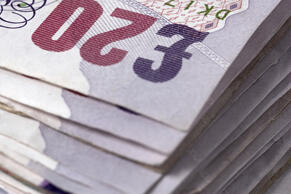HMRC wins big in “tax on gifts” case
Bernie Ecclestone’s lawyer faces a massive tax bill following the First-tier Tribunal’s (FTT’s) ruling that sums he received as gifts were income. What made the FTT decide the payments were taxable?

Over a period of 14 years Bernie Ecclestone’s former wife, Slavica, made payments totalling around £37 million to Stephen Mullens, Ecclestone’s lawyer. He claimed these gifts resulted from their "personal relationship of friendship and affection" and that they were wholly outside and distinct from any business relationship. Despite hearing evidence of Mrs Ecclestone’s generosity and a document purporting to be a deed of gift relating to a payment in 2006, the FTT considered all the payments, apart from one, were actually a reward for professional services provided by Mullens.
It is possible for a payment to be a gift, and so not taxable as income, even where a business relationship exists between the payer and the recipient, but the burden of proof is high. Mullen’s case was hindered because neither Bernie Ecclestone nor his former wife gave evidence. The FTT judges said they had no hesitation in deciding that Mullens had acted fraudulently in not declaring the payments and then representing them as gifts.
The FTT also ruled that because of Mullen’s deliberate action to hide the payments HMRC was entitled to make back-assessments under the rules of discovery. These give HMRC more time (up to 20 years) in cases of tax lost because of fraud compared with that lost from carelessness.
Related Topics
-
Directors’ fees - can you escape PAYE?
You’ve been asked to join the board of a company in a purely advisory role. For tax and NI efficiency you want your fees to be paid to your own company. Does this arrangement fall foul of HMRC’s off-payroll rules?
-
P46 (car) deadline
-
Filing deadline for self-assessment tax returns

 This website uses both its own and third-party cookies to analyze our services and navigation on our website in order to improve its contents (analytical purposes: measure visits and sources of web traffic). The legal basis is the consent of the user, except in the case of basic cookies, which are essential to navigate this website.
This website uses both its own and third-party cookies to analyze our services and navigation on our website in order to improve its contents (analytical purposes: measure visits and sources of web traffic). The legal basis is the consent of the user, except in the case of basic cookies, which are essential to navigate this website.